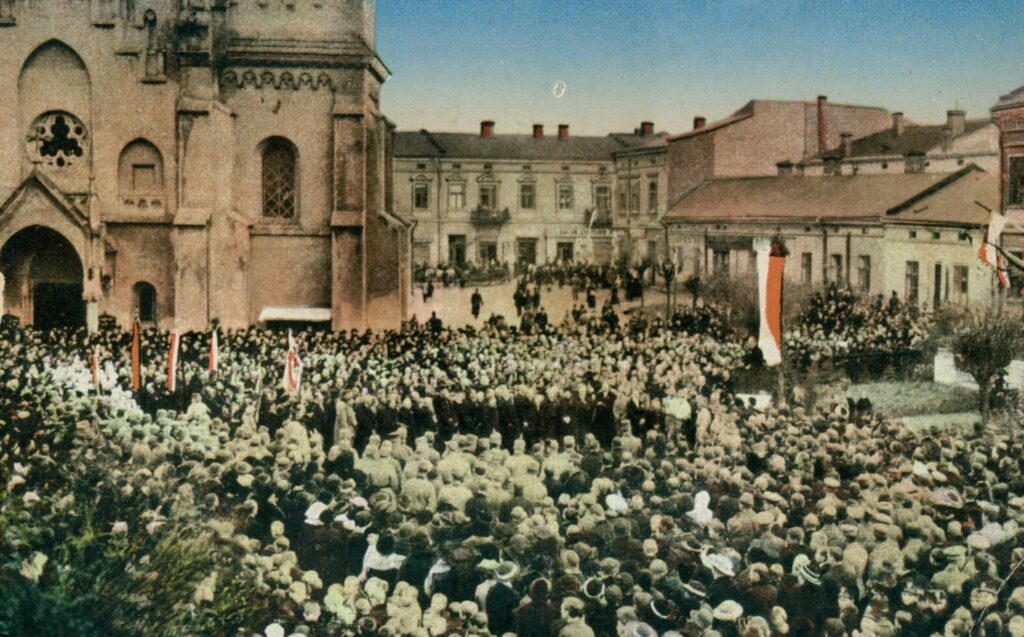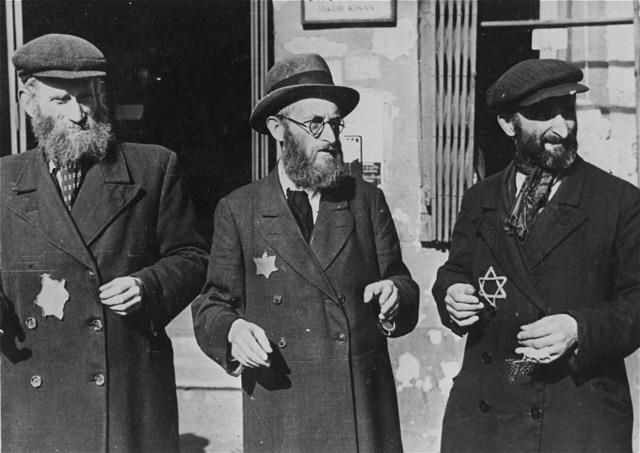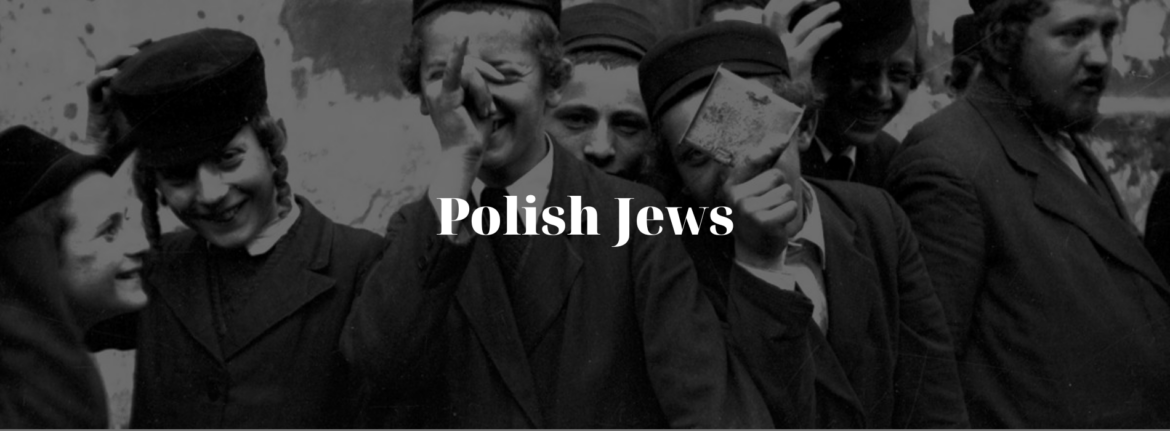The culture of Polish Jews, forged over centuries, is a remarkable fusion of religious heritage, linguistic diversity, and unique customs that have shaped Polish society in profound ways. Jewish communities in Poland have faced cycles of prosperity, persecution, and resurgence, leaving an indelible mark on Polish identity. Today, a renewed interest in Jewish culture and heritage is reshaping how Poland understands and celebrates its Jewish roots.
Centuries of Jewish Presence in Poland
Jewish communities began establishing themselves in Poland as early as the 10th century, gradually flourishing during the reign of King Kazimierz the Great in the 14th century, who granted Jews legal protections and economic freedoms. Poland became a centre of Jewish life and scholarship, known as Polin, meaning „rest here” in Hebrew, symbolising a sanctuary for Jews in Europe. By the 18th century, Poland housed the world’s largest Jewish population, and this vibrant community profoundly influenced Poland’s economy, culture, and intellectual landscape.

A distinctive feature of Polish Jewish culture was the development of Yiddish as a common language among Ashkenazi Jews. Yiddish, a fusion of German, Hebrew, and Slavic languages, flourished in literature, theatre, and everyday life. Jewish communities across Poland formed close-knit groups with unique traditions that shaped the social and religious fabric of Polish society. Towns with significant Jewish populations were known as shtetls, where life revolved around synagogues, marketplaces, and religious studies, fostering a distinct Polish-Jewish identity that endures in cultural memory today.
Jewish Religion and Rituals: A Rich Spiritual Heritage
The religious life of Polish Jews was deeply interwoven with Orthodox and Hasidic practices. Hasidism, a mystical movement founded in the 18th century by Rabbi Israel ben Eliezer, known as the Baal Shem Tov, flourished in Poland, especially in Galicia and other southern regions. Hasidism emphasised spiritual joy, community life, and personal connections with God, offering an alternative to traditional Jewish learning.
Religious customs were integral to daily life, from observing the Sabbath to celebrating holidays like Passover, Rosh Hashanah, and Yom Kippur. Kashrut, or Jewish dietary laws, shaped traditional Polish Jewish cuisine, introducing kosher foods such as gefilte fish, challah, and latkes to Polish palates. These dishes have become iconic elements of Jewish culture and are enjoyed during religious and family gatherings, reflecting the community’s continuity despite historical upheavals.
Jewish religious architecture also left a lasting imprint on Poland’s urban and rural landscapes. Magnificent synagogues, such as the Great Synagogue in Warsaw and the Remuh Synagogue in Kraków, served as both places of worship and symbols of cultural pride. While many were destroyed during WWII, efforts to restore remaining synagogues and Jewish cemeteries honour the memory of Jewish communities and celebrate Poland’s multicultural heritage.
Devastation and Survival: WWII and the Holocaust
The history of Polish Jews was forever altered by the horrors of the Holocaust. Before WWII, approximately 3.5 million Jews lived in Poland, forming a vibrant and significant minority. The Nazi occupation, however, led to the systematic annihilation of Jewish communities, with ghettos established in cities like Warsaw and Łódź, followed by deportations to extermination camps such as Auschwitz, Treblinka, and Majdanek. The Holocaust decimated Poland’s Jewish population, leaving a scar that persists in collective memory.
Despite this devastation, Jewish resistance and resilience were evident. The Warsaw Ghetto Uprising of 1943, led by Jewish fighters, became a symbol of courage and defiance. Today, memorials across Poland, including the POLIN Museum of the History of Polish Jews and the Warsaw Ghetto Monument, commemorate the lives lost and honour the legacy of resistance, serving as educational and commemorative spaces that connect new generations with this painful history.
A Revival of Jewish Life and Culture in Modern Poland
In recent decades, there has been a significant revival of Jewish culture in Poland, with descendants of Jewish families rediscovering and embracing their heritage. Organisations, synagogues, and cultural festivals are fostering a Jewish renaissance, reshaping how Polish Jews view their identity and how Polish society connects with its Jewish past.
The Jewish Culture Festival in Kraków, launched in the late 1980s, is one of the most celebrated symbols of this revival. Each year, the festival draws attendees from around the world to experience Jewish music, art, and culinary traditions, including concerts, workshops, and culinary tours that introduce Polish audiences to Jewish culture. This renewed interest reflects a broader Polish curiosity and respect for Jewish contributions to national culture, a trend that is furthered by community centres, schools, and cultural associations across the country.

The revival of Jewish studies in universities and the establishment of institutions like the Taube Center for Jewish Life and Learning and the Galicia Jewish Museum contribute to an educational movement that brings Jewish history, language, and traditions to new generations. These centres not only preserve the Jewish heritage of Poland but also foster dialogue on issues of identity, memory, and reconciliation.
Language and Literature: A Legacy of Yiddish and Hebrew
Poland’s rich Jewish literary heritage, which includes works written in Yiddish, Hebrew, and Polish, reflects the community’s intellectual and artistic spirit. Yiddish literature flourished in Poland before the war, with poets and novelists like Isaac Bashevis Singer, who later won the Nobel Prize in Literature. Singer’s stories, set in the landscapes of pre-war Poland, capture the essence of Jewish life in the shtetls and explore universal themes of faith, identity, and the human condition.
Modern Polish Jewish literature continues to flourish, exploring themes of memory, loss, and rediscovery. Contemporary authors like Hanna Krall and Andrzej Stasiuk delve into the complexities of Polish-Jewish history, capturing the enduring impact of Jewish culture on Poland’s literary landscape. These works not only highlight the resilience of Jewish identity but also encourage a deeper understanding of the intricate bonds between Jewish and Polish heritage.
Festivals, Art, and Cuisine: Celebrating Jewish Identity Today
Poland’s Jewish cultural festivals, art exhibitions, and culinary events offer vibrant celebrations of Jewish heritage that resonate across the country. Events such as the Warsaw Jewish Film Festival showcase Jewish filmmakers and storytelling, while art exhibitions often explore themes of identity, heritage, and historical memory.
Cuisine plays a particularly central role in Polish Jewish celebrations, with dishes like pierogi, cholent, and kugel bridging Polish and Jewish culinary traditions. Kosher food festivals and cooking workshops introduce traditional recipes to broader audiences, allowing people to connect with Jewish heritage through shared tastes and experiences.
Artistic expressions, from music to contemporary art, embody a dialogue between past and present. Klezmer music, a genre traditionally rooted in Ashkenazi Jewish culture, enjoys a revival in Polish cities, with Klezmer bands performing in cafes and cultural venues. This music, often lively and soulful, recalls the melodies of Polish-Jewish life while inviting modern audiences to participate in its cultural resurgence.
A Continuing Legacy
Today, the culture of Polish Jews reflects both the weight of history and the vitality of a community that has survived and adapted over the centuries. Poland’s Jewish heritage is woven into the nation’s identity, from its cuisine and literature to the architecture and music that continue to inspire curiosity and respect. With the support of educational initiatives, cultural festivals, and a renewed sense of identity, Polish Jews and non-Jews alike celebrate a heritage that enriches and deepens the cultural landscape of Poland. The revival of Jewish life in Poland stands as a testament to resilience and the enduring power of cultural connection, bridging past and present in ways that honour and affirm a shared heritage.
